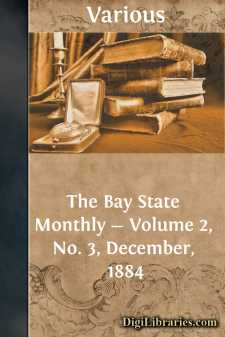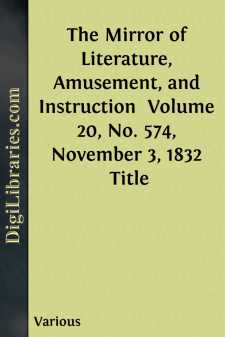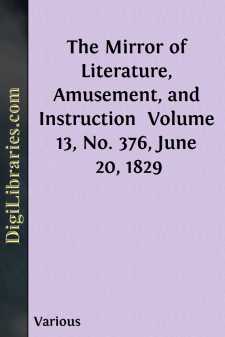Categories
- Antiques & Collectibles 13
- Architecture 36
- Art 48
- Bibles 22
- Biography & Autobiography 815
- Body, Mind & Spirit 144
- Business & Economics 28
- Children's Books 18
- Children's Fiction 14
- Computers 4
- Cooking 94
- Crafts & Hobbies 4
- Drama 346
- Education 58
- Family & Relationships 59
- Fiction 11835
- Games 19
- Gardening 17
- Health & Fitness 34
- History 1378
- House & Home 1
- Humor 147
- Juvenile Fiction 1873
- Juvenile Nonfiction 202
- Language Arts & Disciplines 89
- Law 16
- Literary Collections 686
- Literary Criticism 179
- Mathematics 13
- Medical 41
- Music 40
- Nature 180
- Non-Classifiable 1768
- Performing Arts 7
- Periodicals 1453
- Philosophy 65
- Photography 2
- Poetry 896
- Political Science 203
- Psychology 44
- Reference 154
- Religion 515
- Science 126
- Self-Help 85
- Social Science 83
- Sports & Recreation 34
- Study Aids 3
- Technology & Engineering 59
- Transportation 23
- Travel 463
- True Crime 29
Our website is made possible by displaying online advertisements to our visitors.
Please consider supporting us by disabling your ad blocker.
The Bay State Monthly - Volume 2, No. 3, December, 1884
by: Various
Categories:
Description:
Excerpt
DANIEL LOTHROP.
By JOHN N. MCCLINTOCK, A.M.The fame, character and prosperity of a city have often depended upon its merchants,—burghers they were once called to distinguish them from haughty princes and nobles. Through the enterprise of the common citizens, Venice, Genoa, Antwerp, and London have become famous, and have controlled the destinies of nations. New England, originally settled by sturdy and liberty-loving yeomen and free citizens of free English cities, was never a congenial home for the patrician, with inherited feudal privileges, but has welcomed the thrifty Pilgrim, the Puritan, the Scotch Covenanter, the French Huguenot, the Ironsides soldiers of the great Cromwell. The men and women of this fusion have shaped our civilization. New England gave its distinctive character to the American colonies, and finally to the nation. New England influences still breathe from the Atlantic to the Pacific, and from the great lakes to Mexico; and Boston, still the focus of the New England idea, leads national movement and progress.
Perhaps one of the broadest of these influences—broadest inasmuch as it interpenetrates the life of our whole people—proceeds from the lifework of one of the merchants of Boston, known by his name and his work to the entire English speaking world: Daniel Lothrop, of the famous firm of D. Lothrop & Co., publishers—the people's publishing house. Mr. Lothrop is a good representative of this early New England fusion of race, temperament, fibre, conscience and brain. He is a direct descendant of John Lowthroppe, who, in the thirty-seventh year of Henry VIII. (1545), was a gentleman of quite extensive landed estates, both in Cherry Burton (four miles removed from Lowthorpe), and in various other parts of the country.
Lowthorpe is a small parish in the Wapentake of Dickering, in the East Riding of York, four and a half miles northeast from Great Driffield. It is a perpetual curacy in the archdeaconry of York. This parish gave name to the family of Lowthrop, Lothrop, or Lathrop. The Church, which was dedicated to St. Martin, and had for one of its chaplains, in the reign of Richard II., Robert de Louthorp, is now partly ruinated, the tower and chancel being almost entirely overgrown with ivy. It was a collegiate Church from 1333, and from the style of its architecture must have been built about the time of Edward III.
From this English John Lowthroppe the New England Lothrops have their origin:—
"It is one of the most ancient of all the famous New England families, whose blood in so many cases is better and purer than that of the so-called noble families in England. The family roll certainly shows a great deal of talent, and includes men who have proved widely influential and useful, both in the early and later periods. The pulpit has a strong representation. Educators are prominent. Soldiers prove that the family has never been wanting in courage. Lothrop missionaries have gone forth into foreign lands. The bankers are in the forefront....












